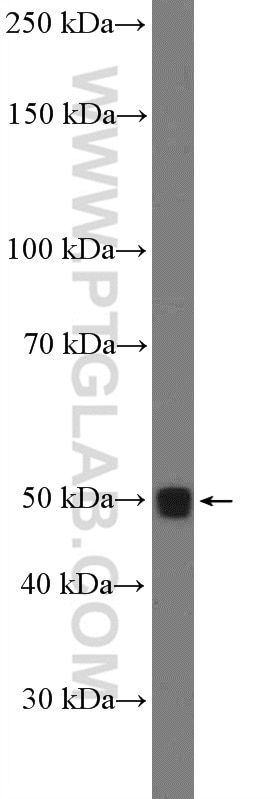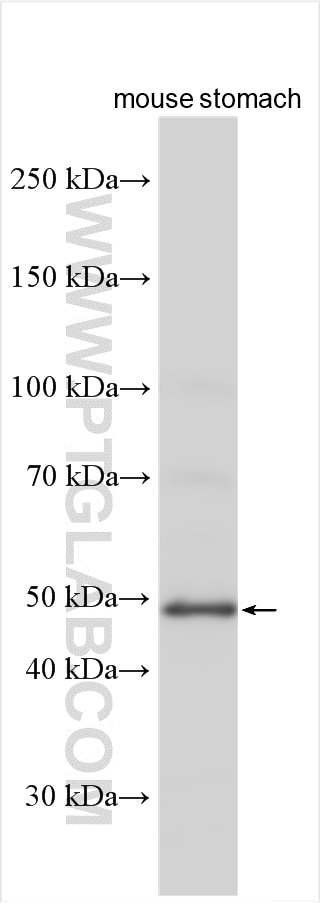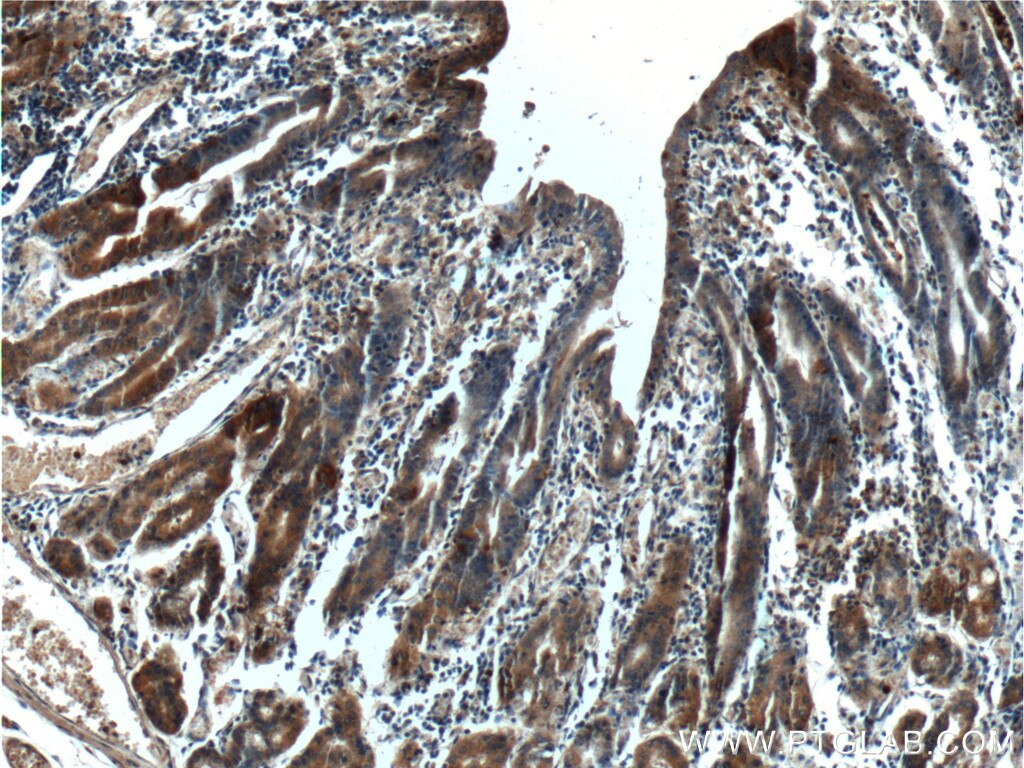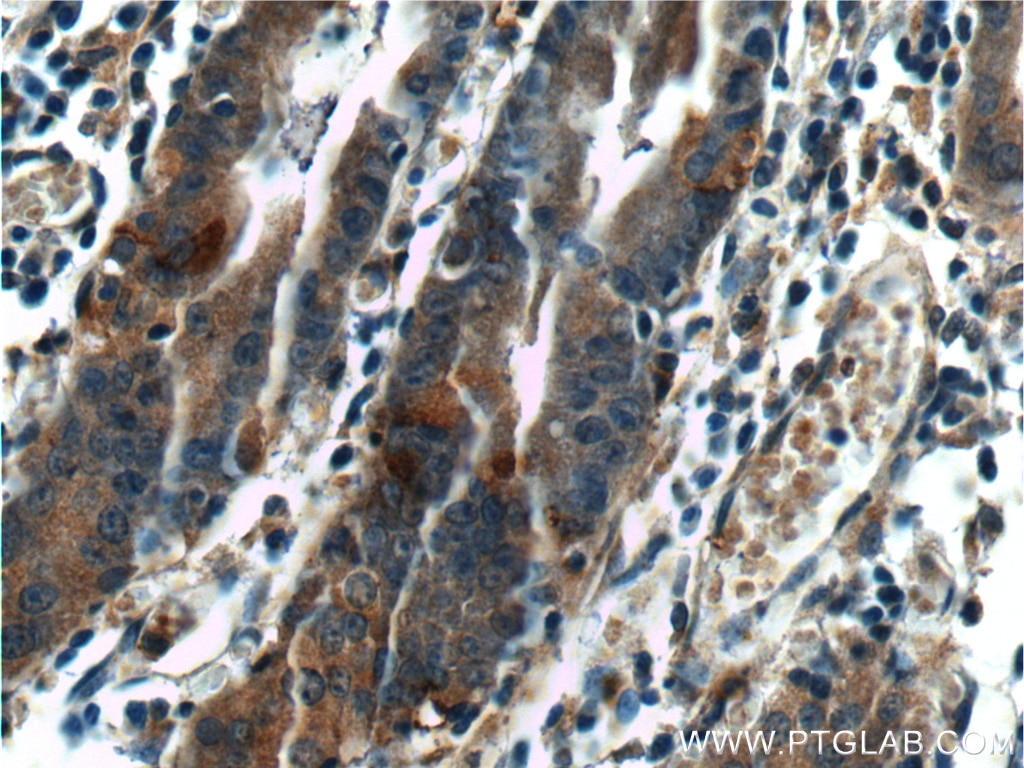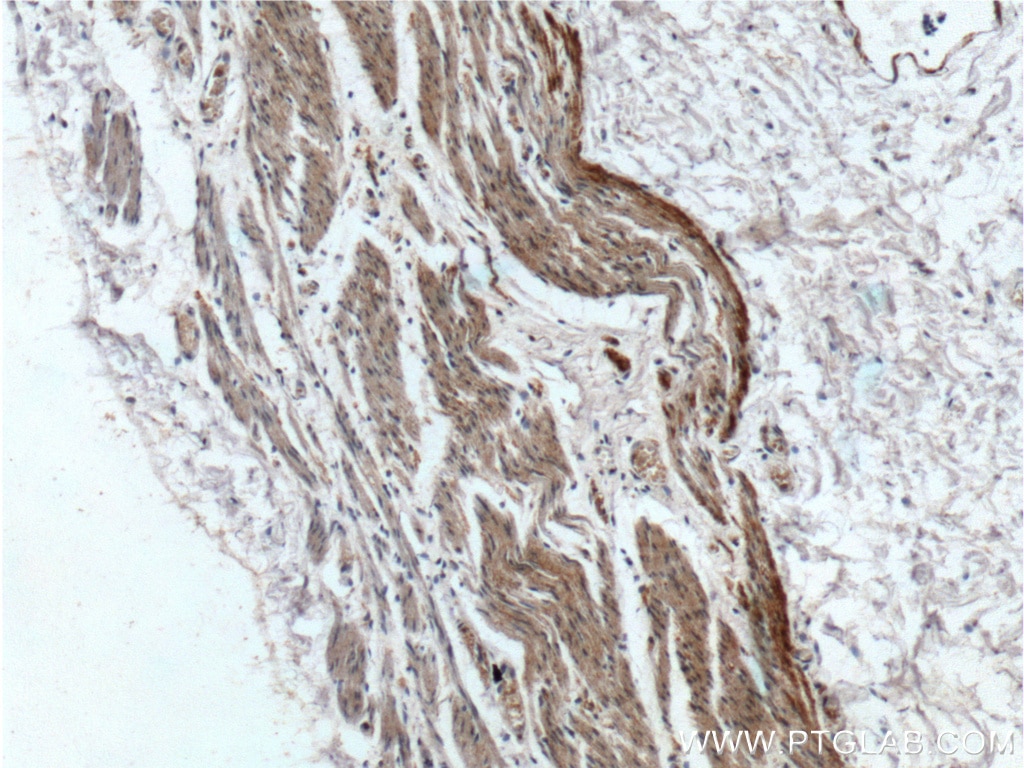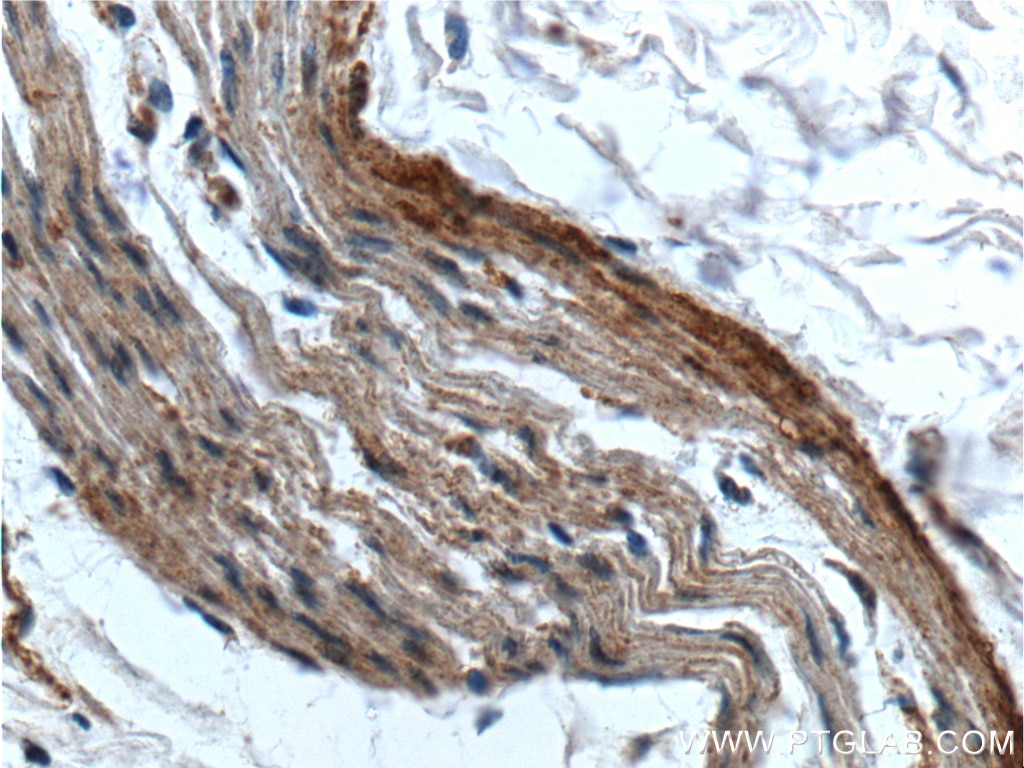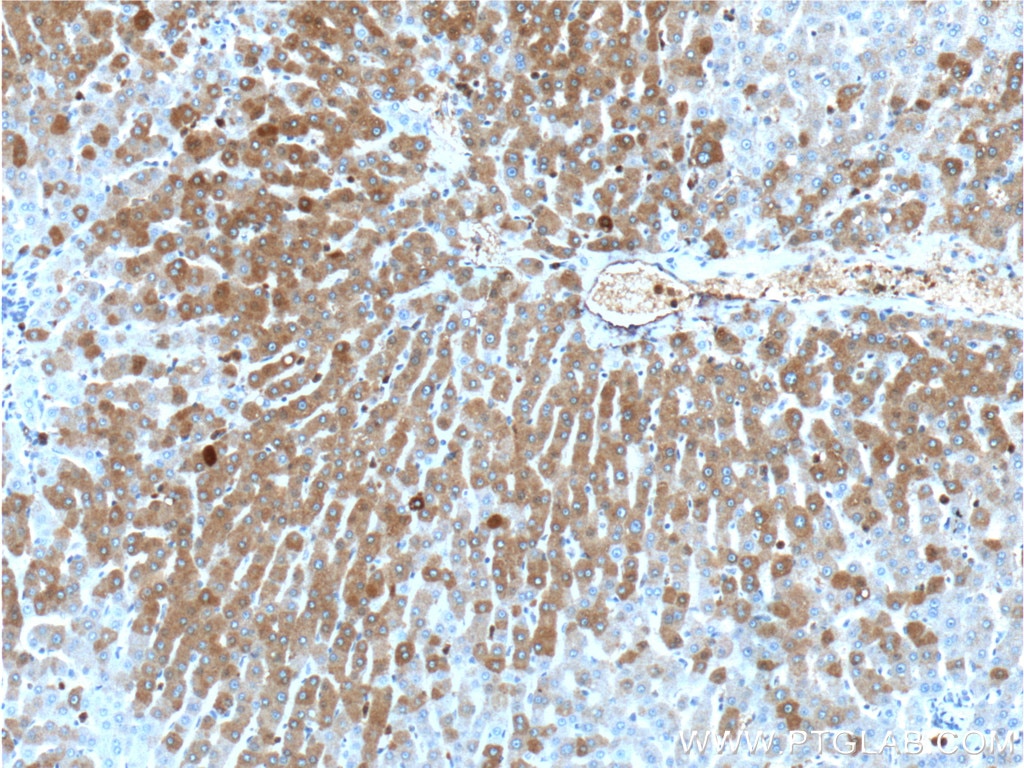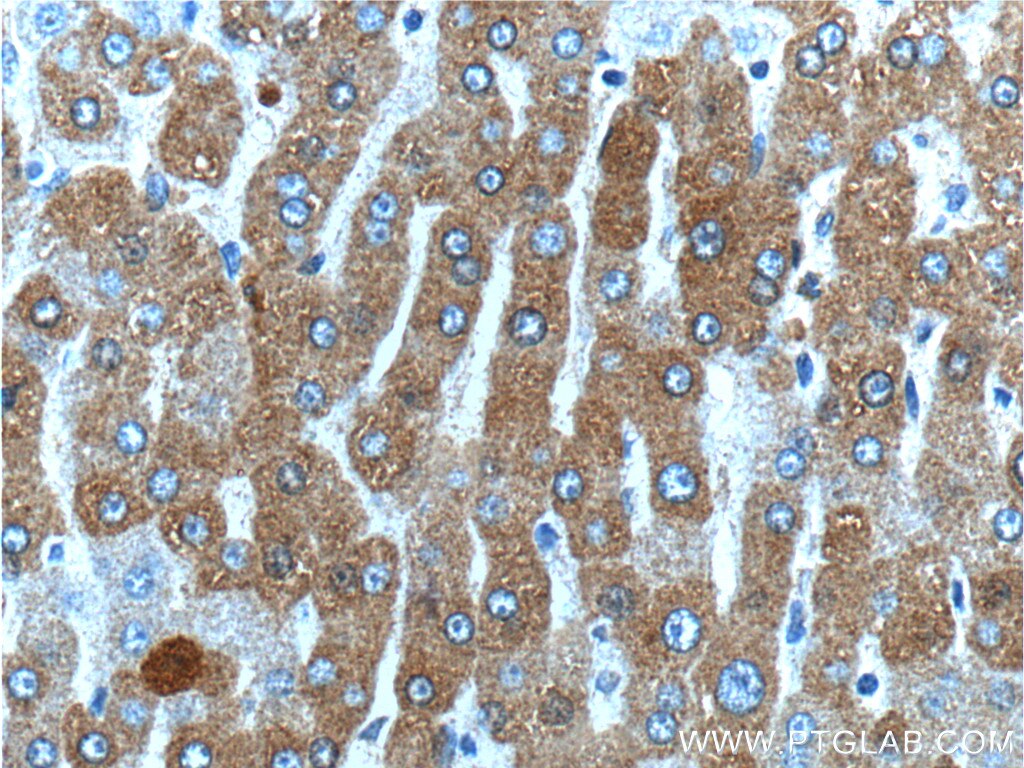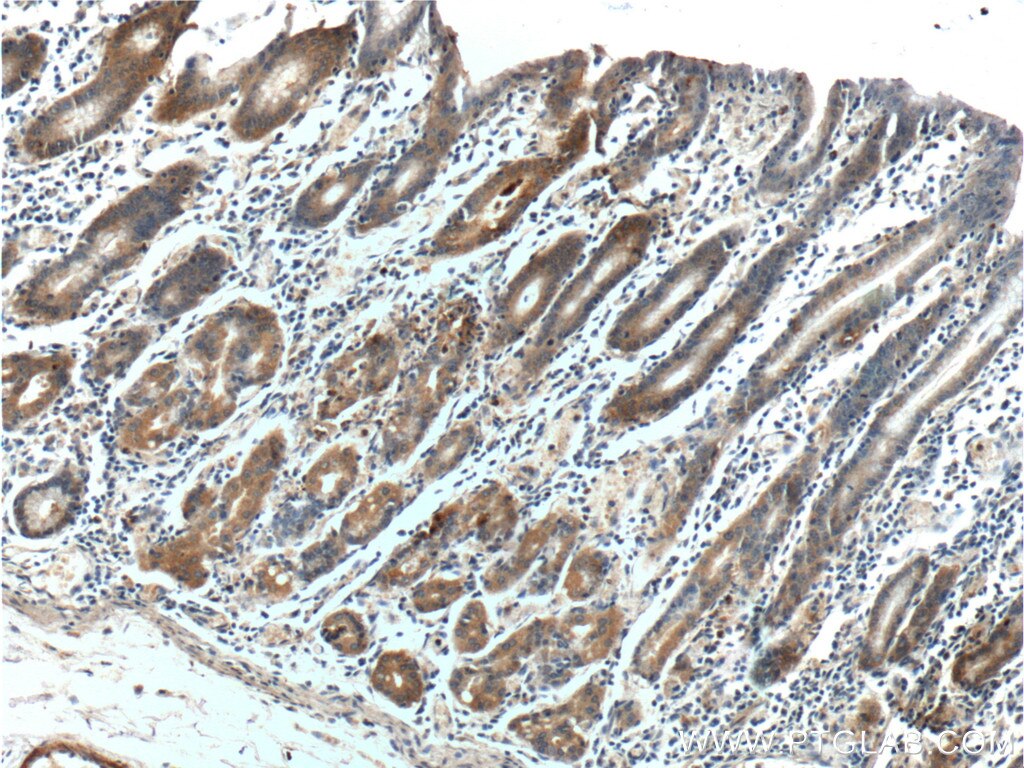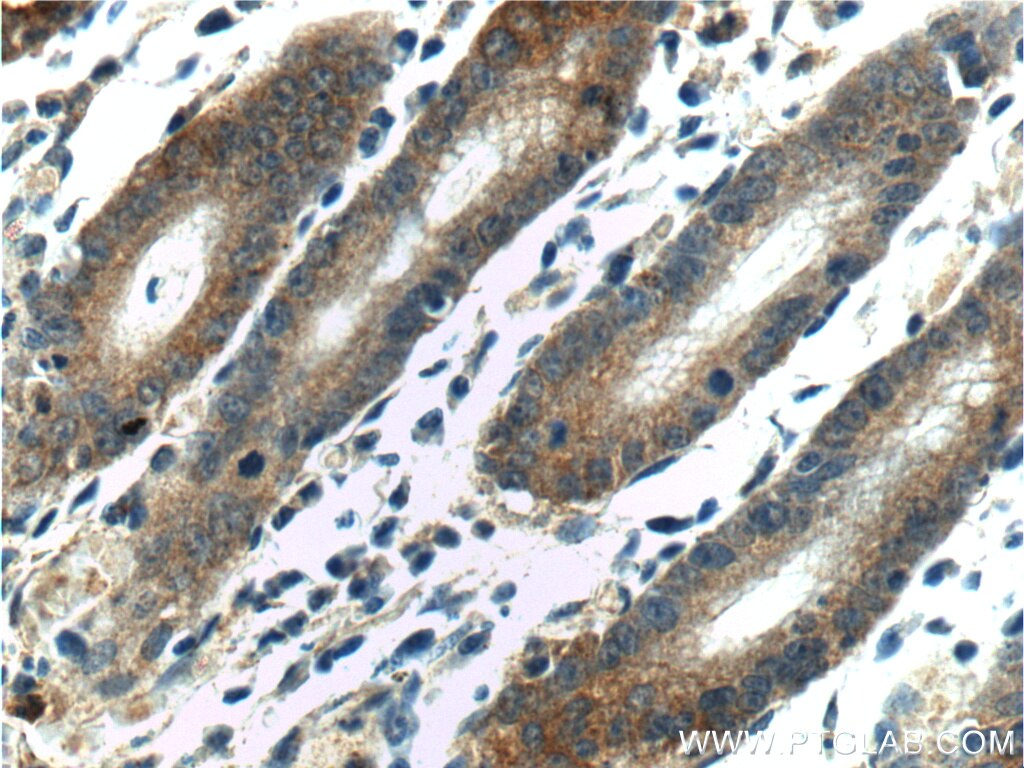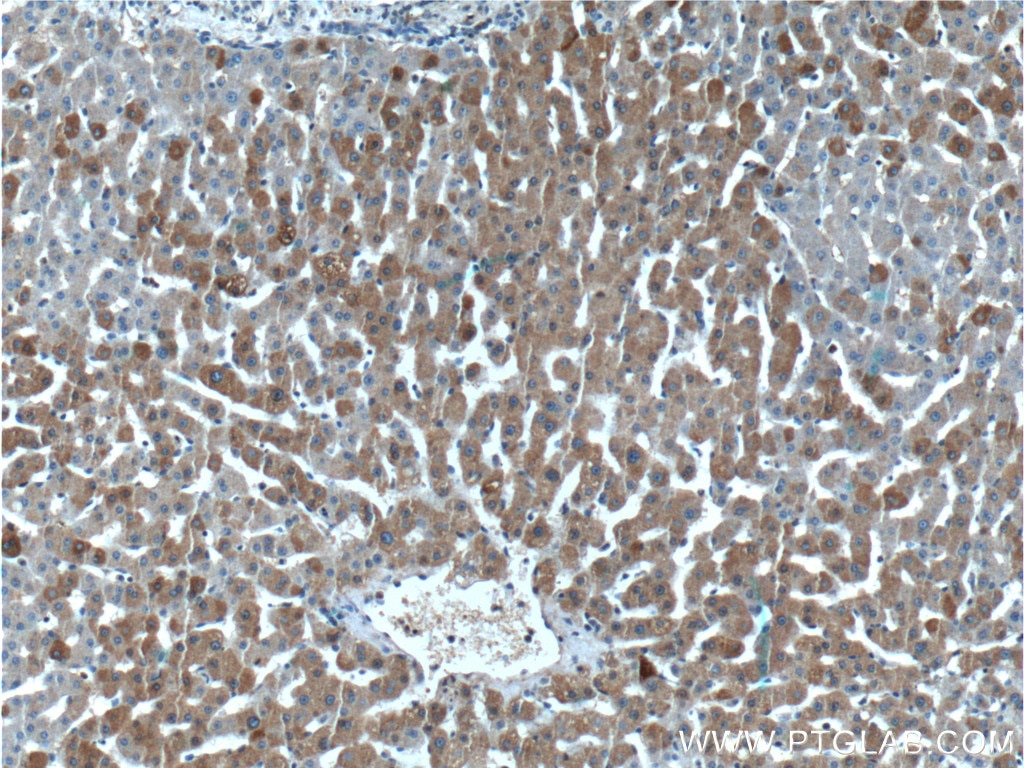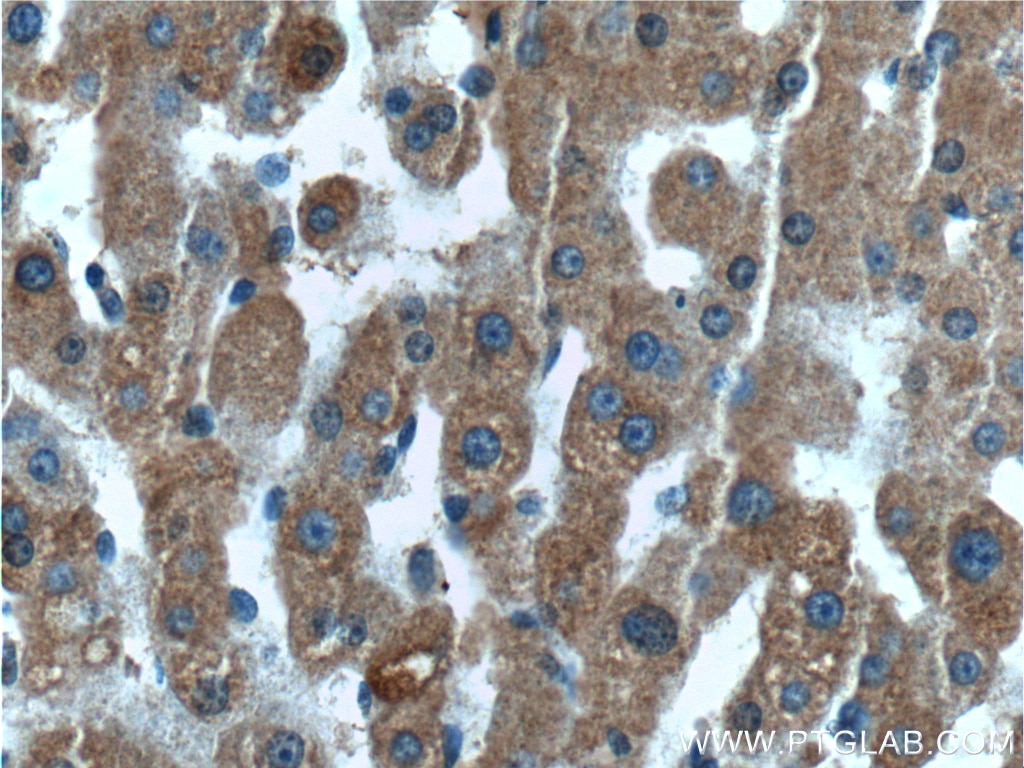Tested Applications
| Positive WB detected in | MKN-45 cells, mouse stomach tissue |
| Positive IHC detected in | human stomach tissue, human liver tissue Note: suggested antigen retrieval with TE buffer pH 9.0; (*) Alternatively, antigen retrieval may be performed with citrate buffer pH 6.0 |
Recommended dilution
| Application | Dilution |
|---|---|
| Western Blot (WB) | WB : 1:200-1:1000 |
| Immunohistochemistry (IHC) | IHC : 1:50-1:500 |
| It is recommended that this reagent should be titrated in each testing system to obtain optimal results. | |
| Sample-dependent, Check data in validation data gallery. | |
Product Information
25889-1-AP targets LIPF in WB, IHC, ELISA applications and shows reactivity with human, mouse samples.
| Tested Reactivity | human, mouse |
| Host / Isotype | Rabbit / IgG |
| Class | Polyclonal |
| Type | Antibody |
| Immunogen | LIPF fusion protein Ag23149 Predict reactive species |
| Full Name | lipase, gastric |
| Observed Molecular Weight | 49 kDa |
| GenBank Accession Number | BC112272 |
| Gene Symbol | LIPF |
| Gene ID (NCBI) | 8513 |
| RRID | AB_2880284 |
| Conjugate | Unconjugated |
| Form | Liquid |
| Purification Method | Antigen affinity purification |
| UNIPROT ID | P07098 |
| Storage Buffer | PBS with 0.02% sodium azide and 50% glycerol , pH 7.3 |
| Storage Conditions | Store at -20°C. Stable for one year after shipment. Aliquoting is unnecessary for -20oC storage. 20ul sizes contain 0.1% BSA. |
Background Information
gastric lipase, is an enzyme involved in the digestion of dietary triglycerides in the gastrointestinal tract, and responsible for 30% of fat digestion processes occurring in human. It is secreted by gastric chief cells in the fundic mucosa of the stomach, and it hydrolyzes the ester bonds of triglycerides under acidic pH conditions.
Protocols
| Product Specific Protocols | |
|---|---|
| WB protocol for LIPF antibody 25889-1-AP | Download protocol |
| IHC protocol for LIPF antibody 25889-1-AP | Download protocol |
| Standard Protocols | |
|---|---|
| Click here to view our Standard Protocols |
